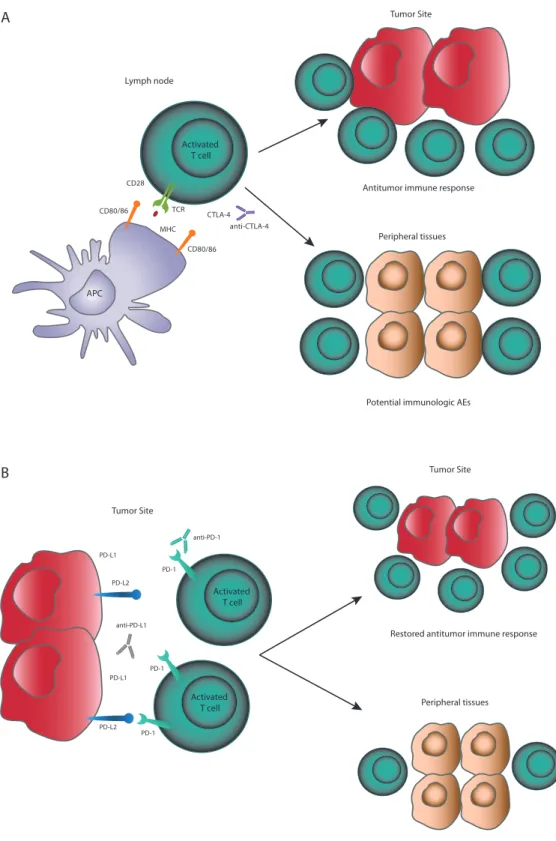PD-1 pathway inhibitors: The next generation of immunotherapy for advanced melanoma
Full text
Figure
![Table 1: Mechanism of action of anticancer agents in melanoma and association with response patterns and safety profile [4, 7, 10, 12, 13, 16–25]](https://thumb-us.123doks.com/thumbv2/123dok_us/1031128.2636404/3.918.86.835.114.829/table-mechanism-anticancer-melanoma-association-response-patterns-profile.webp)


![Table 2: Select immunologic adverse events reported in patients with melanoma receiving checkpoint inhibitors [12, 17, 21, 38, 40–46]](https://thumb-us.123doks.com/thumbv2/123dok_us/1031128.2636404/7.918.91.837.118.1074/select-immunologic-reported-patients-melanoma-receiving-checkpoint-inhibitors.webp)
Related documents
The in vitro drug release study shown that Sodium alginate alone could not sustain the drug release for sufficient period of time whereas incorporation of rate
The objectives of the study are to seek the perceptions of the students in using English Language Oral Communication Skills during industrial training and how they can improve
Based on this TAST model, a cocktail approach is developed for personalized travel package recommendation by considering some additional factors including the seasonal behaviors
Over 45 cars available to test drive including 18 fitted with adaptations FREE entry, FREE parking and a FREE tea or coffee in a fully accessible indoor venue Over 40 scooters and
Molecular phylogenies based on cox1 mitochondrial and rbcL chloroplast gene sequences were constructed and lineage separation compared, mating trials conducted
It is shown that moving dislocations produced during plastic deformation of crystalline materials cause light emission due to several processes like mechanical or
management processes of knowledge which determine the nature and types of knowledge, and the foundations of existing knowledge, and the acquisition of knowledge
Large-scale brain network modeling Transcranial direct current stimulation Noninvasive brain stimulation Brain network dynamics Neural mass modeling Resting state
